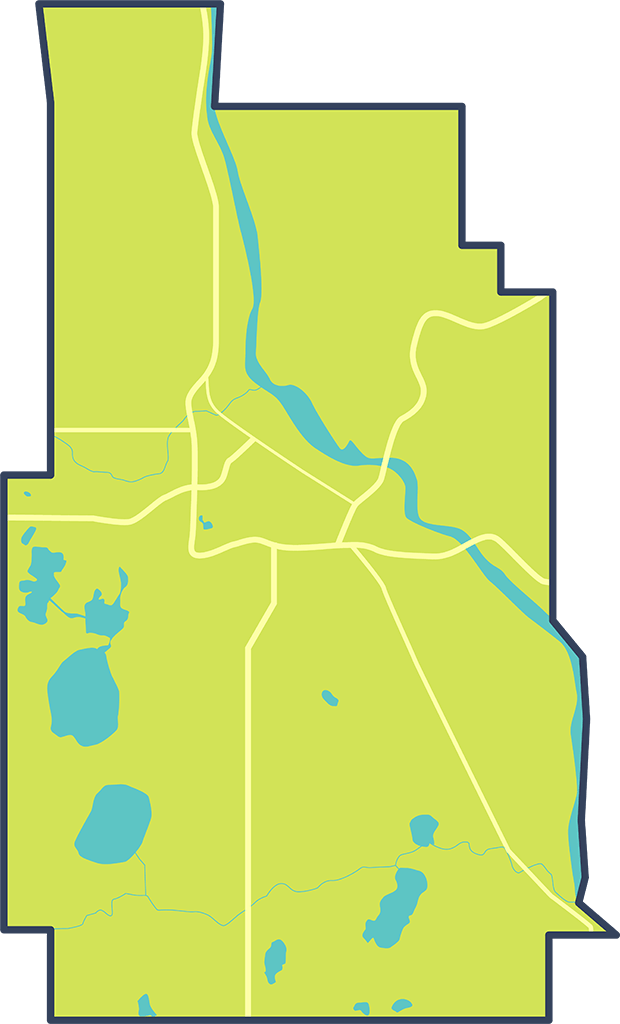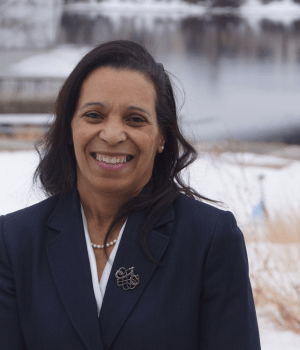Baro Musharaxiinta
U Kala Shaandhee Degmo-degmo
Doorashooyinka guddiga dugsiyada ee Minneapolis waxa la qabtaa labadii sanaba mar. Sannadka 2024, degmooyinka 2, 4, 6, iyo hal kursi oo ballaaran ayaa u tartamaya doorashada.

Guud ahaan
Dhamaan xaafadaha Minneapolis.
Dhammaan dugsiyada hoose, dhexe, iyo sare ee Minneapolis.

Kim Ellison
Guud ahaan
How would you ensure the district is financially sustainable? What do you think are the most important steps for MPS to take to respond to the existing budget deficit?
One step the district should do is create a plan to invite students back to Minneapolis Public Schools. I also believe MPS can rightsize the district. Currenty, MPS is set up as if it it is serving 50,000 students but we know the actual number of students is closer to 29,000. We cannot afford to maintain the number of school buildings we have and the central office is too large. I support Superintnedent Sayles-Adams’ decision to decrease the size of her cabinet but we must do more. With the help the community, I would like to explore which schools are most appropriate for everything we need them to do and determine which programs are attractive to our families. With this information, we can make the right decisions for the district and ensure our funding is sustainable.
Jump to thoughts on:
Enrollment has decreased in MPS for 5+ straight years, especially among BIPOC students (see here for trends); what strategies would you use to reestablish strong enrollment in the district, particularly among families whose voices are not frequently heard?
Our Black, Indigenous, Latino, Asian, and African students are the largest population in Minneapolis Public Schools. First, we need to engage families that have not traditionally been heard to learn their ropes and dreams for the child’s education. And, if a family leaves the district, we must ask them why to learn what would’ve kept then in MPS, what can keep others, and to learn what could bring them back. And, in addition to listening to the needs of our families, the district should talk with teachers and other staff of color — staff are invested in the success of MPS and understand the needs and challenges of students, both in and out of school.
What do you see as the role of the school board member? What skills and experience would you bring to the board that is needed? Are you open to increasing your knowledge around school board governance?
As a governing board, board members are expected to hire, fire, and evaluate a superintendent, set policy for the district, and balance a budget. That sounds simple enough but to do this with fidelity, it is important for members to understand the impact these decisions have on the lives of students and staff. Board members should understand how programs affect students and families, be great communicators, and understand budgets.
In addition to my experience on the school board, I am the mother of four grown children who attended Minneapolis Public Schools, a former high school alternative education teacher, have served in organizations that worked on advocating for adequate school funding at the State, a program that offers summer and weekend education experiences, and an agency looking at equity in education.
MPS school board members attend an annual Council of Great City Schools conference to learn more about governance and I am always willing to learn more.
What strategies would you advocate for to hire, retain, support, and develop educators of color?
I would begin by learning from current MPS educators of color to discover their experience in the district. I’d use that information to form effective strategies to help the district adequately recruit and retain educators that best reflect the experiences of students.
What are your views on the science of reading? What priorities would you advance to ensure the district is improving literacy for students?
I believe reading is the most important skill we teach children. And, reading is as much a skill as it is an art. We should be teaching the mechanics of reading while increasing the desire to read. We can motivate children to wanting to read by ensuring their are interesting materials that children want to read. Once formal reading has begun, students will be reading in every class so all educators should be trained on how to identify when students are struggling and provide them the resources to address those issues. These are some ways MPS can create a culture focused on literacy in every building.
What do you see as the role of youth voice and opinion in decisions affecting Minneapolis Public Schools? How would you work to ensure that students have the opportunity to shape and influence their own learning?
Hearing from youth is one of the most important things the district should do. They are the people being served and can articulate the most impactful issues to district and school leadership. In addition to student board representatives and student government, the district can create safe spaces for students not attending board meetings an opportunity to share what is important and helpful to them.
How do you plan to prioritize and resource the new ethnic studies standards, and ensure the associated curriculum, and related staff training create acceptance and celebration of every student’s background, such as race/ethnicity, gender identity, religion, and sexual orientation?
Minneapolis Public Schools is already teaching Ethnic Studies courses and, a year ago, we added a credit of Ethnic Studies as a requirement for graduation. It became an issue when students of color told the school board that they didn’t see themselves reflected in their History course. I talked to parents, legislators, and district staff to add Ethnic Studies to the curriculum so all students can feel seen and their history taught.
In addition, budget choices and other decisions are made to ensure every student’s physical and mental well-being is an integral part of their education. MPS considers the whole child and works to ensure that every aspect of students is celebrated.
As a school board director, what does accountability look like to you?
To be accountable, school board directors need to be available, involved, and honest. Showing up in spaces outside the board room, listening to families, and returning to report all updates and learn how any changes have impacted learning and whether they helped. Accountability involves listening, reporting, and being willing to change direction when things are not going well.
Know Your Ballot
All Minneapolis residents can vote for an at-large candidate, but you can also vote for a district-specific candidate.
Ha iloobin inaad codeyso
SAMEYSO QORSHE